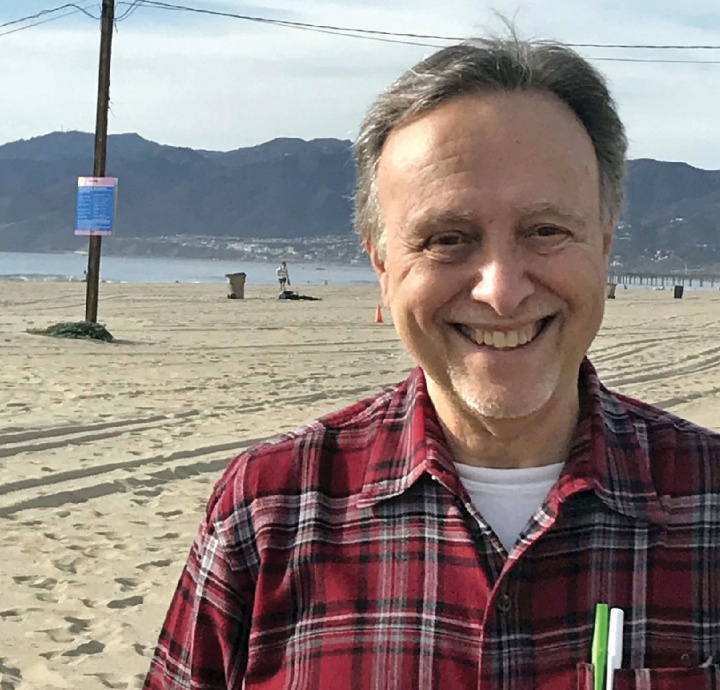Columbia College | Columbia University in the City of New York
A Pioneer in the Field of Gay History

COURTESY JOHN D’EMILIO ’70, GSAS’82
Times have changed. Forty years later, D’Emilio is regarded not only as a leader in the field of gay history but also as a rock star at the University of Illinois at Chicago who has won numerous awards and honors, including a dissertation prize bearing his name.
“He was absolutely a pioneer,” says Estelle Freedman BC’69, the Edgar E. Robinson Professor in U.S. History at Stanford, with whom D’Emilio collaborated on the 1988 bestseller Intimate Matters: A History of Sexuality in America, now in its third edition. “His work has been incredibly important and influential.”
D’Emilio has won wide recognition: He was inducted into the Chicago LGBT Hall of Fame in 2005, has been a Guggenheim fellow and is the author of several more books. His 2003 biography of gay civil rights leader Bayard Rustin earned wide acclaim; a memoir, Memories of a Gay Catholic Boyhood: Coming of Age in the Sixties, is due out next fall.
His rise to prominence was hardly meteoric — it was a struggle against a homophobic society not yet ready to accept nonconforming sexuality as an academic field. D’Emilio was born to working-class Italian immigrants in the Bronx, and raised in the Catholic church. He attended Regis H.S., an elite Catholic boys’ school in Manhattan, on scholarship. (Dr. Anthony S. Fauci, chief medical advisor to President Biden, is also an alumnus.)
Once on campus, D’Emilio moved into a John Jay Hall single. For a teen grappling with his emerging gay identity, New York City seemed to offer a relatively safe space, but he was still closeted. He was, he says, “coming to grips with being gay at a time when it was impossible to be gay”; he was also involved in the antiwar movement. Needing a break from academia, D’Emilio landed in the library of Long Island University, reading radical publications and heading in a new direction.
“What I was learning through them was a revisionist view of U.S. history, consistent with what the antiwar movement was shouting at demonstrations,” he says, “and I realized I’d never taken a U.S. history course.”
So, back he went to Columbia. He had an idea for a doctoral dissertation on a subject of great personal interest, and brought the topic — the history of homosexuality in America — to his advisor, historian William Leuchtenburg GSAS’51. D’Emilio still recalls his wry response: ‘John, I think you need to narrow your topic somewhat. You have an area, not a topic.’”
D’Emilio focused on the history of gay activism from 1940 to 1970. His dissertation would become his first book, Sexual Politics, Sexual Communities, in 1983.
Though he’d begun graduate school in 1971, D’Emilio didn’t get his doctorate until 1982. Even then, supporting himself with several freelance jobs, he saw his future in writing. But eventually, he applied for teaching positions with an emphasis on gay history.
“I had recommendations, publications, a book under contract. But in the early ’80s, what the hell is gay history? No one was teaching it,” he says. D’Emilio finally landed at the University of North Carolina Greensboro in 1983 and stayed until 1995. He left to found and chair the National Gay and Lesbian Task Force’s Policy Institute, and, in 1999, the University of Illinois at Chicago came calling.
Since 2014, D’Emilio has been emeritus professor of history and women’s and gender studies, but still speaks and writes about gay history. His most recent work, Queer Legacies: Stories from Chicago’s LGBTQ Archives, was published in 2020.
“I’ve retired in the sense that I don’t have to go to faculty meetings, prepare syllabi, and grade papers and exams, but I still get to do research and writing,” he says. Composing his memoir, however, has been a new and different experience: “It’s so weird to be publishing a book about me instead of about something else.”
Eugene L. Meyer ’64 is a former longtime Washington Post reporter and editor and author, most recently, of Five for Freedom: The African American Soldiers in John Brown’s Army.
Issue Contents
Published three times a year by Columbia College for alumni, students, faculty, parents and friends.
Columbia Alumni Center
622 W. 113th St., MC 4530, 6th Fl.
New York, NY 10025
212-851-7852
cct@columbia.edu
Columbia Alumni Center
622 W. 113th St., MC 4530, 4th Fl.
New York, NY 10025
212-851-7488
ccalumni@columbia.edu

